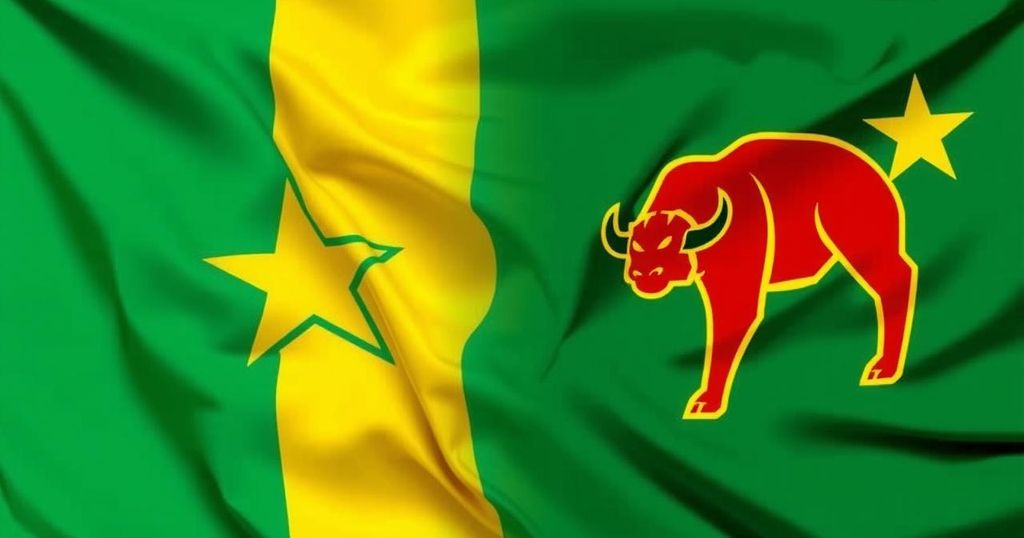Somaliland Opposition Party Supports Ethiopia’s Partnership Amid Calls for Openness

The Waddani opposition party in Somaliland endorses the partnership with Ethiopia, emphasizing mutual benefits and the need for transparency regarding the recent MoU. Issues surrounding the details of the agreement and the response to Somalia’s objections are highlighted. The party expresses confidence in ongoing collaboration, particularly in trade and security, while also addressing Somalia’s internal challenges.
HARGEISA, Somalia – The opposition party in Somaliland has expressed its support for Ethiopia’s longstanding partnership with the region, emphasizing the collaborative efforts that have yielded mutual benefits amidst the complexities faced in the Horn of Africa. Mohamed Abdullahi Omar, a prominent member of the Waddani party, articulated that the party endorses the agreement reached between Somaliland and Ethiopia, acknowledging Ethiopia as a legitimate partner in their dealings. Omar, however, raised concerns regarding the transparency of the Memorandum of Understanding (MoU) signed by the Somaliland administration, criticizing President Musa Bihi Abdi’s government for failing to disclose the agreement’s specifics to both the opposition and the parliament — a requirement under current legislation. He stated, “Unfortunately, the current Somaliland administration has not shared the details of the MoU with the opposition nor the parliament, yet we are the majority in the parliament. Once those details are brought to our attention, we will make an informed view based on Somaliland’s long-term national interest and the principles of good neighborhood relations.” Despite the lack of accessible details regarding the MoU, Omar expressed confidence in the durability of Somaliland-Ethiopia relations, asserting that there is no inherent issue with Somaliland entering agreements with neighboring nations. He noted, “Our party is confident that Ethiopia is genuine in its relationship with Somaliland, and we look forward to further cooperation in many areas, including trade, security, and energy.” Omar further emphasized that Somaliland retains the authority to forge agreements with any country, citing past bilateral accords with nations such as the United Arab Emirates. He underscored that the pivotal factors guiding any treaty must prioritize the welfare of the Somaliland populace and require parliamentary sanctioning following a thorough case presentation by the governing body. Notably, he highlighted the potential economic advantages that could stem from Ethiopia utilizing the port of Berbera. In response to Somalia’s objections regarding the MoU, Omar called upon the Mogadishu government to focus on addressing pressing internal security challenges, including the threat posed by Al-Shabaab extremists. He stated, “Somalia has got a lot to focus on now including its internal problems such as lawlessness and eliminating terrorist groups that are causing chaos and mayhem. Ethiopia’s pursuit of port access is a legitimate interest and our Berbera port is precisely built for that purpose. It is meant to be a regional commercial hub. We welcome Ethiopia’s use of our port. Under our leadership, these ties will grow further.” Amid these developments, the Somali government has accused Ethiopia of intentions to annex territory as a result of the agreement, which reportedly includes a stipulation for Ethiopia to secure a 20-kilometer corridor to access the Red Sea. Mogadishu contends that Addis Ababa must withdraw this agreement prior to engaging in any negotiations.
The relationship between Somaliland and Ethiopia has historically been characterized by collaboration, particularly in trade, security, and regional stability. This partnership is seen as crucial for both parties, especially given the geopolitical challenges within the Horn of Africa. While Somaliland operates autonomously, the interactions with neighboring nations, particularly Ethiopia, hold significant implications for regional commerce and security dynamics. The recent signing of a Memorandum of Understanding has ignited discussions around the transparency and implications of such agreements, reflecting broader tensions in the region, especially with respect to Somali national interests.
In summary, the Waddani party supports the ongoing partnership between Somaliland and Ethiopia, recognizing the potential benefits of their collaboration for trade and security. However, there are legitimate calls for transparency regarding the agreement’s specifics, highlighting the need for governmental accountability and public oversight. As regional tensions persist, particularly concerning Somalia’s stance on territorial rights, Somaliland’s strategic engagement with Ethiopia continues to evolve as a focal point for both local and regional discourse.
Original Source: www.garoweonline.com








